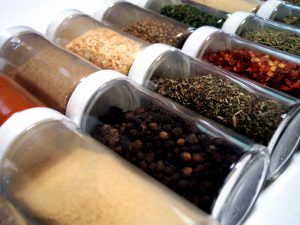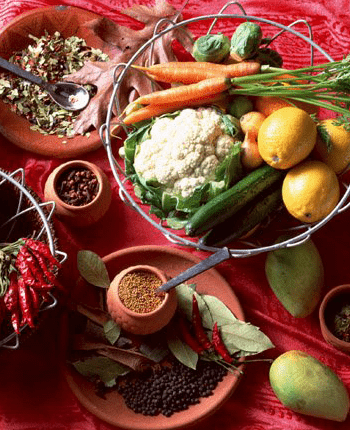
Herbs and spices play quite a significant role in the Mediterranean cuisine. Besides the fact that these food ingredients provide an enticing flavor and aroma to all those sumptuous Mediterranean dishes, they also do your body a lot of good. By the way, are you aware of the fact that by using herbs and spices lavishly on your food, you can effectively reduce your risks of diabetes, hypertension, cardiovascular diseases, and even cancer? They can even help you live a longer and healthier life!
Are you finding it hard to imagine how these unassuming food ingredients can do such a magnificent feat? Well, I can’t blame you. After all, a lot of people in the Western world may not be aware of this wonderful news. But let me assure you – all of these are true. And there is sufficient evidence to back it up. But first, let us try to understand how herbs and spices are able to do all of these.
Being of plant origin, herbs and spices also contain chemicals that help them cope up with adverse environmental factors. And these chemicals, known as phytonutrients, were proven to exert a beneficial and protective effect on our health, too.
Based on the results of recent studies conducted by the US Department of Agriculture, herbs and spices were proven to have more antioxidant content as compared to most fruits and vegetables. Listed below are some noteworthy examples:
- One teaspoon of paprika or dried ginger has the same amount of antioxidants as one serving of green pepper or tomatoes.
- Half a teaspoon of cumin seeds contain as much antioxidants as one standard serving of red grapes or kiwi fruit.
- One teaspoon of ground cinnamon contains the same amount of antioxidants as a serving of blueberries and/or cranberries.
- However, of all the herbs and spices, oregano was found to be the one with the most antioxidant content. It has 42 times more antioxidant content than apples and 12 times more than oranges. Isn’t that simply amazing?
By acting as powerful antioxidants, phytonutrients can help prevent inflammation, disease, premature aging and death. Isn’t that what you, and most of us, are hoping for? If you want to get the full details of this study, you can refer to the September 2001 print issue of the Journal of Agricultural and Food Chemistry and read to your heart’s content.
Additionally, by using herbs and spices in your cooking, you can reduce the amount of salt that goes into your food. Perhaps you are aware of the unhealthy effects of too much salt (sodium) in your diet, right? It can inevitably increase the volume of blood which in turn will increase the pressure on your heart and arteries. As such, a high sodium diet can lead to hypertension, heart disease and kidney failure. Are you willing to risk your health just to satisfy your craving for salt? You shouldn’t. It’s really not worth it.
And not only that – herbs and spices can also help you reduce the amount of sugar and fat in your diet without sacrificing the taste of your foods. And this accounts for yet another healthy benefit of using them in preparing your foods. Is there anything more you can ever ask for?
Without a doubt, herbs and spices can be good for your health, especially when taken in moderation. So, start dashing and sprinkling some herbs and spices into your everyday dishes and you’ll surely be satisfied with the results!
I hope you find something useful in today’s post.
Here’s to a healthier future,
Ray Baker

